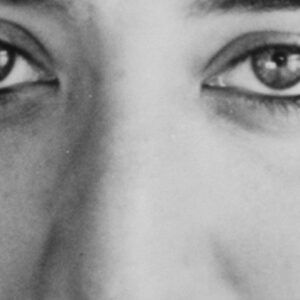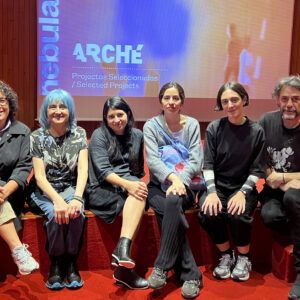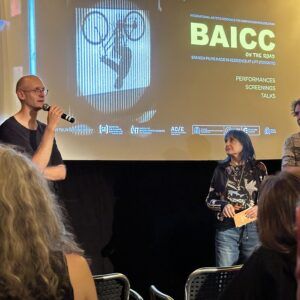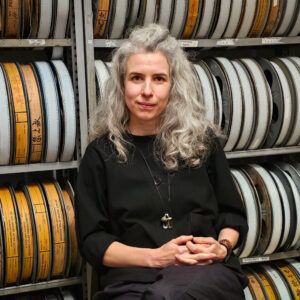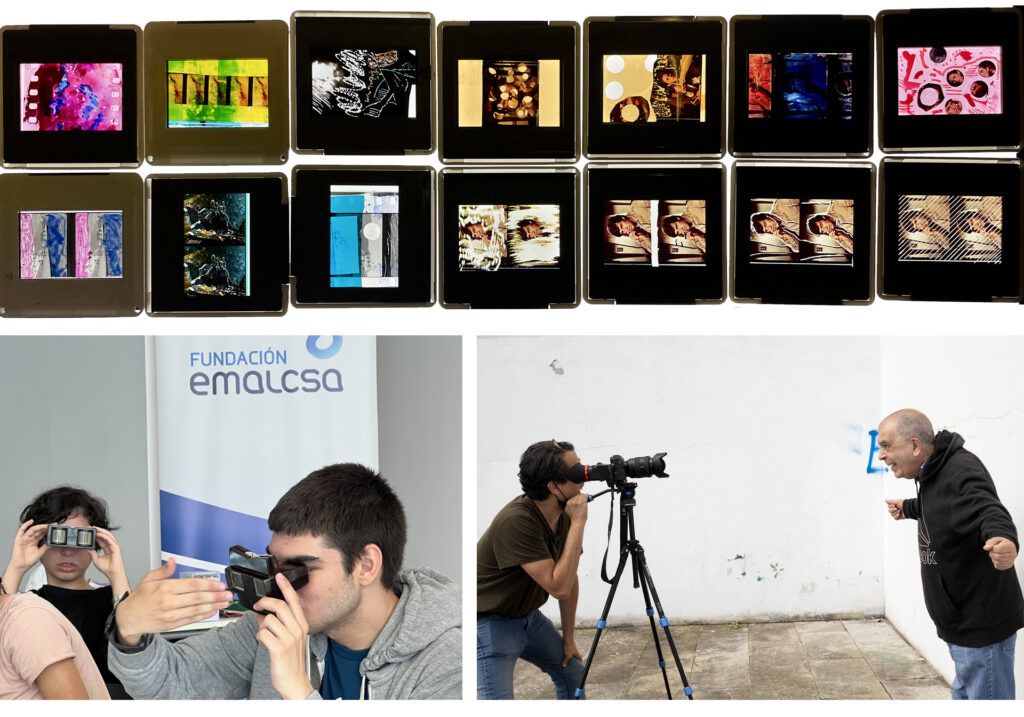
Once again this year, the days leading up to the International Peripheral Film Festival will be packed with an extensive educational calendar. There will be four screenings for schoolchildren, starting on 13 May. On 30 and 31 May, it will be the turn of Xpresa, the social inclusion workshop organised with support from the Emalcsa Foundation and its Accessible and Inclusive Culture programme.
With participation from users with diverse abilities from the Adcor Foundation and Asperga, the Xpresa workshop is directed by the visual artist Deneb Martos who is giving an educational and creative masterclass entitled “Rhythms of Light, Cameraless Cinema for Inclusion”. The workshop, lasting one day for each group, is planned as a sensorial and creative exploration via different materials, interacting with 16 mm and 35 mm film using collages, inks and acetates.
This workshop links up with one of the festival’s purposes: cinema as an artistic experience
The dynamics of the workshop, now in its eighth year and held at the Seoane Foundation, include an analogue screening of the outcomes, sharing the collective experience of light in motion. Its goal is to foster social inclusion via art and collective creation, providing a safe, respectful and open space for experimentation. It also stimulates visual coordination and perception for cinema to be enjoyed as a sensory, playful experience.
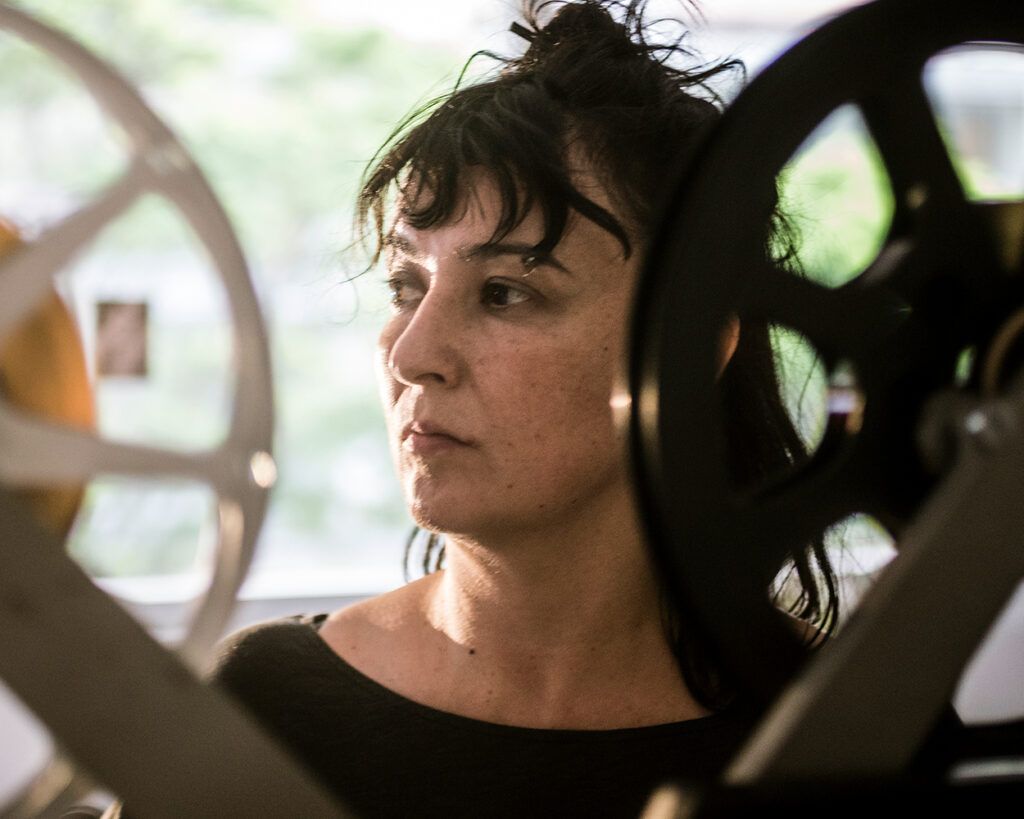
Visual artist Deneb Martos will manage both creative workshops
DENEB MARTOS
An alchemist, visual artist and creator, Martos specialises in cameraless photography and filmmaking, using traditional and sustainable techniques. Her work has appeared in events such as FILMADRID, the KONTAKTE ’17 Festival (Berlin), the MUTA Festival (Lima) and Punto de Vista (Pamplona), as well as in the (S8) festival itself, with which she has been collaborating for years.
Martos was a founding member and head of the PHOTO LAB at La Casa Encendida in Madrid for a decade, and she now coordinates LAV, the Audiovisual Laboratory for Contemporary Creation and Practice. She collaborates with cultural institutions such as the Cerezales Foundation (FCAYC), the Guggenheim Museum in Bilbao, the Spanish Film Library (Filmoteca Española), and the Cine Estudio de Bellas Artes (Fine Arts Studio Cinema) in Madrid.
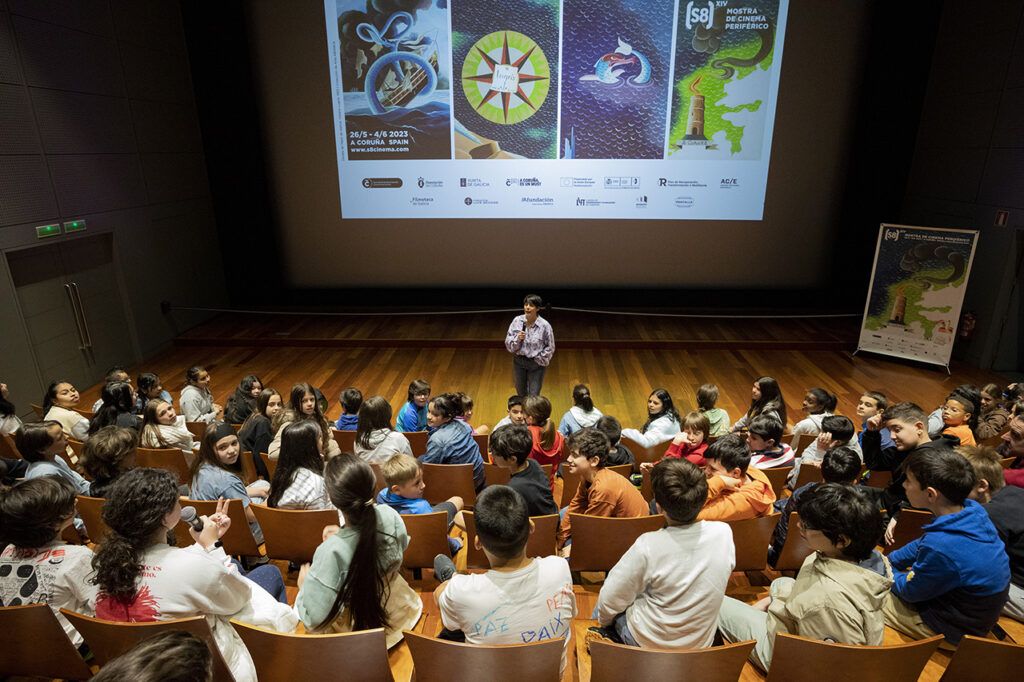
SCREENINGS FOR SCHOOLCHILDREN
In addition to the Xpresa workshop, pre-festival activities begin long before with gatherings designed for schools intended to reach younger audiences by showing them a more exploratory, free and artistic way of making films.
These screenings for schoolchildren are held at the Domus, with collaboration from the Department of Education of the municipality of A Coruña, and more than a thousand students have already been to them since they began in 2021. This time, four sessions have been scheduled for 13, 20, 27 May and 2 June, and there are already places booked for more than three hundred pupils from IES Menéndez Pidal, IES Urbano Lugrís and CEIP Concepción Arenal in A Coruña.
An analogue screening and a discussion with Galician filmmakers Xacio Baño and Iago Lourido
These sessions are an opportunity for students to discover analog cinema, as they include a projection in Super 8 and they can see—and even touch—that original way of making movies. In this edition we also present the work of two Galician filmmakers, of whom we will project several pieces and talk to them about their creative process. In the first two sessions, the protagonist is Iago Lourido, a young director who last year already screened his film Velos na Tebra (2024) in the (S8) and who repeats this year in the official program with Solposto (2025).
In the last two sessions, the guest director is Xacio Baño, also Galician and a regular of the Mostra with three of his works, Anacos (2012), Ser e Voltar (2014) and Platónico, Platónica (2024). In addition to being educational, these meetings are a real boost of energy for the festival team and the creators, thanks to the fresh perspective always brought by children.
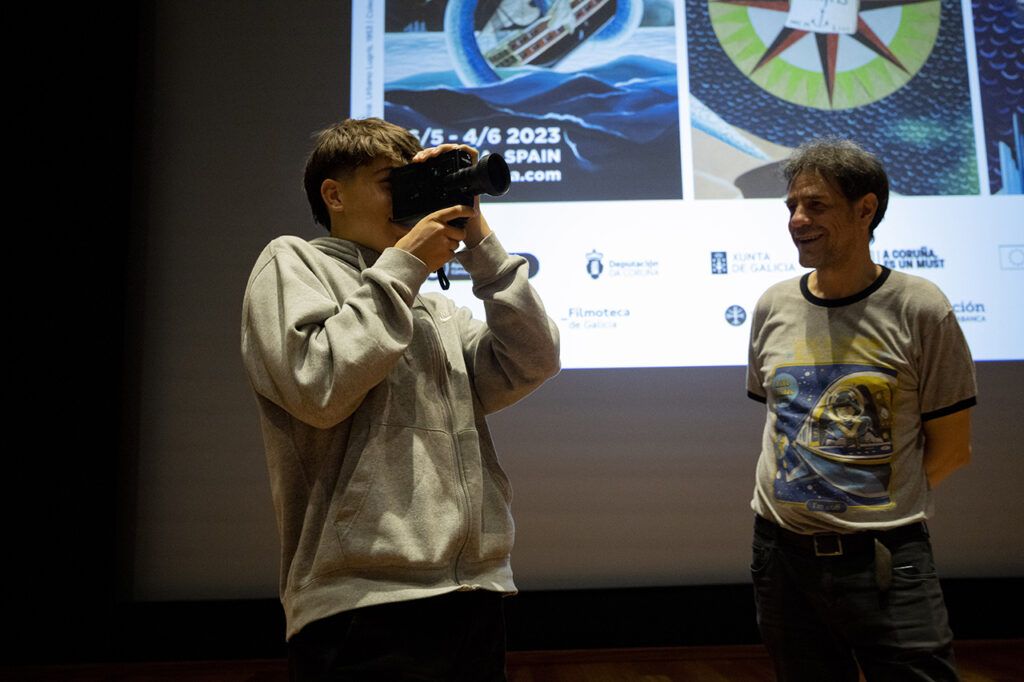
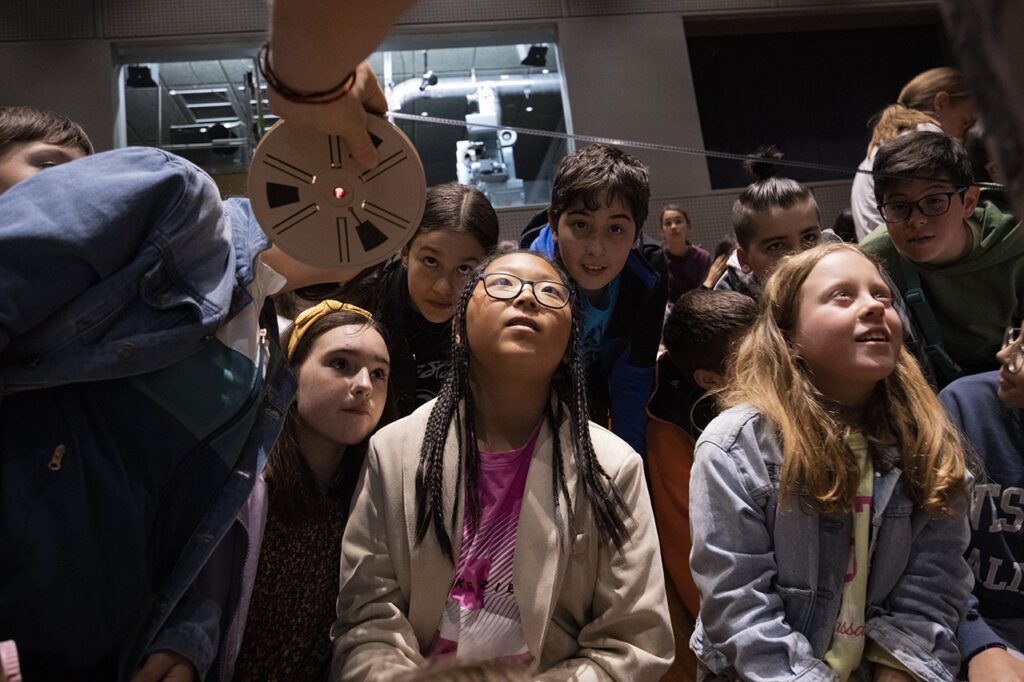
It is a chance for young people to discover analogue cinema. Photos: María Meseguer

